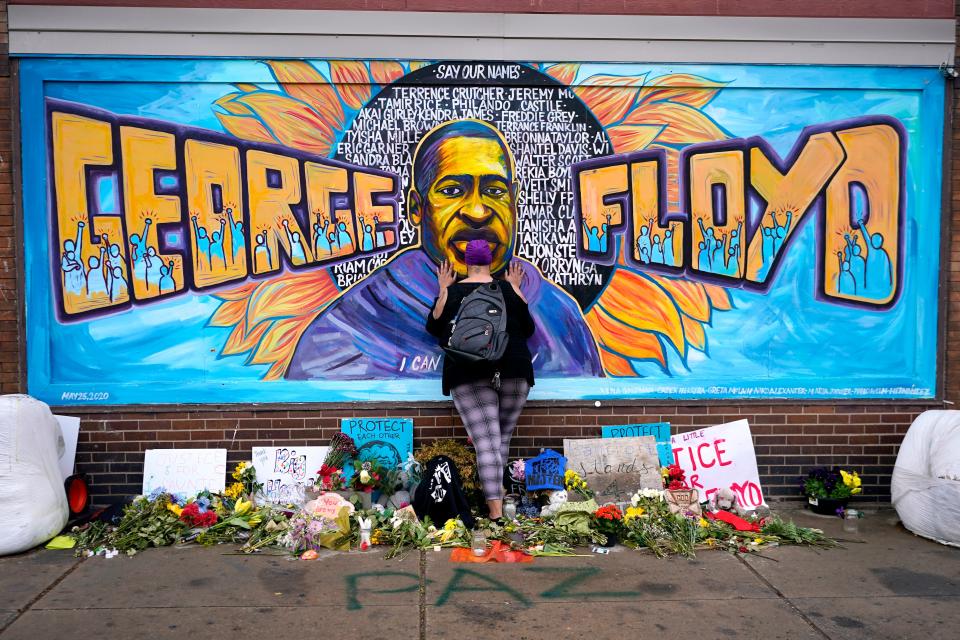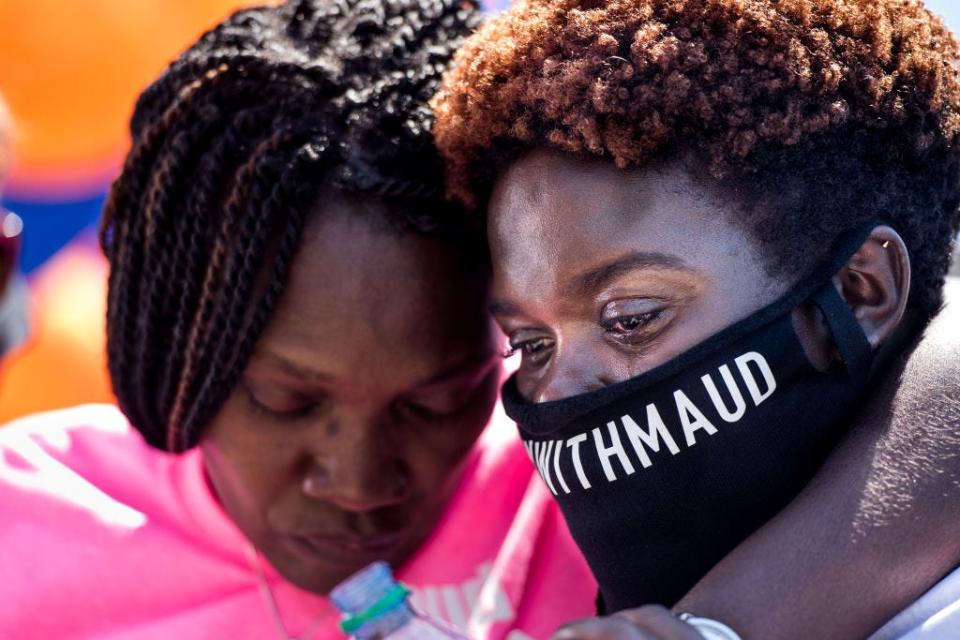President Biden's promises on policing reform: What the administration has accomplished
The trial of ex-Minneapolis police officer Derek Chauvin for the murder of George Floyd last month raised civil rights activists' hopes of a turning point in accountability for law enforcement. But as Chauvin was being tried, police in Brooklyn Center, Minnesota, fatally shot 20-year-old Daunte Wright, while police in Chicago shot and killed 13-year-old Adam Toledo. Just minutes before Chauvin was found guilty, a police officer in Columbus, Ohio, shot and killed 16-year-old Ma'Khia Bryant.
The contrast between President Joe Biden's promises and the reality of police reform points to the difficulty of balancing the need for urgency with a desire for broad and deep changes to policing in America, particularly among marginalized communities.
On the campaign trail, candidate Biden proposed creating a national police oversight commission within the first 100 days of his presidency. The 100-day milestone passed last week, but the commission still has not launched.
In delaying the commission, domestic policy adviser Susan Rice said the administration took advice from activist groups like the NAACP Legal Defense and Educational Fund and the Leadership Conference on Civil and Human Rights.
"Based on close, respectful consultation with partners in the civil rights community, the administration made the considered judgment that a police commission, at this time, would not be the most effective way to deliver on our top priority in this area, which is to sign the George Floyd Justice in Policing Act into law,” Rice said in a statement.
Wade Henderson, the interim president and CEO of the Leadership Conference, said in a statement he agreed with the White House decision to forgo a commission. A representative for the NAACP LDF declined to comment.
A White House official said civil rights groups were concerned that a commission would take too long to establish and could undermine momentum for the George Floyd Justice in Policing Act, first introduced in Congress months after Chauvin was arrested last May for kneeling on Floyd's neck for more than nine minutes, even after Floyd lost consciousness. The bill was reintroduced in February, passed in the House in March and now faces a divided Senate.
Activists also felt the commission would take months to get off the ground and too closely resemble commissions launched by former Presidents Donald Trump and Barack Obama.
Instead, the administration has thrown its full weight behind the Floyd act. During his first address to a joint session of Congress last week, Biden called on lawmakers to pass police reform by the anniversary of Floyd's death.
"We have to come together to rebuild trust between law enforcement and the people they serve, to root out systemic racism in our criminal justice system and enact police reform in George Floyd's name," Biden said. "Let's get it done next month, by the first anniversary of George Floyd's death."

Where the George Floyd act is now
Black leaders in the House and Senate have led negotiations on finalizing the bill for a Senate vote.
The bill's sponsor, Rep. Karen Bass, D-Calif., said legislative language could be finalized by May 25, the anniversary of Floyd's death.
“I’m very optimistic that we’ll get it on President Biden’s desk,” Bass said last month.
Sen. Cory Booker, D-N.J, who sponsored a Senate version of the 2020 bill, said talks are still underway after the Chauvin verdict.
“We’re having good conversations, (with) good faith people,” said Booker.
Sen Tim Scott, R-S.C., the Senate's only Black Republican, recently said a compromise on the bill could be finalized soon. Scott's Just and Unifying Solutions to Invigorate Communities Everywhere, or JUSTICE Act, introduced last June, was blocked by Democrats for neglecting reforms like eliminating qualified immunity – a legal doctrine that protects officers from civil action.
More: What if there isn't a video? For families of people killed by police, it's 'not a fair fight'
The Floyd act would limit qualified immunity and lower criminal intent standards. The act would also establish a national registry on police misconduct, among other provisions.
Changes and investigations at the DOJ
Biden's Justice Department appointees have already begun making changes.
Under Attorney General Merrick Garland, the DOJ launched an investigation into the operations of the Minneapolis police department a day after Chauvin's conviction. Garland also overturned a Trump-era policy limiting consent decrees that can help reform local police departments.
Last week, Justice Department officials announced a wide-ranging investigation into civil rights abuses by the Louisville Metro Police Department. Breonna Taylor, a 26-year-old Black woman, was killed when Louisville officers entered her apartment on a "no-knock" warrant last March. Taylor was unarmed.
One officer, Brett Hankison, was indicted on first-degree wanton endangerment for shooting into a neighboring apartment but was not charged for killing Taylor.
The Justice Department also indicted three white men responsible for the 2020 shooting death of Black jogger Ahmaud Arbery on hate crime charges last week. The men were charged with murder and aggravated assault in Georgia, where Arbery was killed.
DOJ has experience in Associate Attorney General Vanita Gupta, former CEO of the Leadership Conference on Civil and Human Rights, who oversaw investigations into police departments in Ferguson, Missouri; Baltimore; and Chicago when she served as acting chief of Obama's Civil Rights Division at DOJ.

Continued police killings of people of color
Amid these movements, there has been no let-up in high-profile killings of people of color – including teenagers – by law enforcement.
In April, North Carolina deputies fatally shot Andrew Brown, Jr, a 42-year-old Black man, in Elizabeth City while attempting to execute drug-related search and arrest warrants. Officers fired on Brown as he drove away from his home. The FBI launched an investigation into the shooting.
Adam Toledo, a Hispanic 13-year-old, was shot by a Chicago police officer on March 29 after raising his apparently empty hands in the air. Police initially said the boy was armed before video of the encounter was released to the public.
Wright, a 20-year-old Black man, was shot by a Brooklyn Center, Minnesota, police officer during a traffic stop. Former officer Kim Potter later quit the force and was arrested and charged with second-degree manslaughter.
Bryant, 16, was shot by Columbus, Ohio, police officer Nicholas Reardon after attacking two women with what appeared to be a kitchen knife, according to video of the incident.
"How do you justify murdering a (16-year-old)? How do justify that? That is a child," Heather Johnson, a 32-year-old activist and mother of six from Columbus told USA TODAY. "There is never a reason to justify Columbus police officers murdering our children."
Contributing: Deborah Berry, USA TODAY; Ledyard King, USA TODAY; Sarah Elbeshbishi, USA TODAY; Bart Jansen, USA TODAY; The Associated Press
This article originally appeared on USA TODAY: What Biden has accomplished on his promises with policing reform
